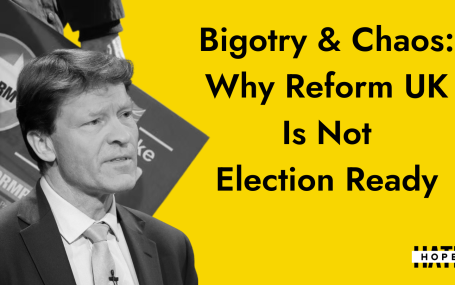HOPE not hate uses cookies to collect information and give you a more personalised experience on our site. You can find more information in our privacy policy. To agree to this, please click accept.
KEY HEADLINES The traditional far right is organisationally at its weakest for decades, but its rhetoric and ideas are now increasingly found in the political…











HOPE not hate reveals ANOTHER shameful Reform UK candidate – and lifts the lid on the party’s chaotic selection process UPDATE: Reform UK has DROPPED…